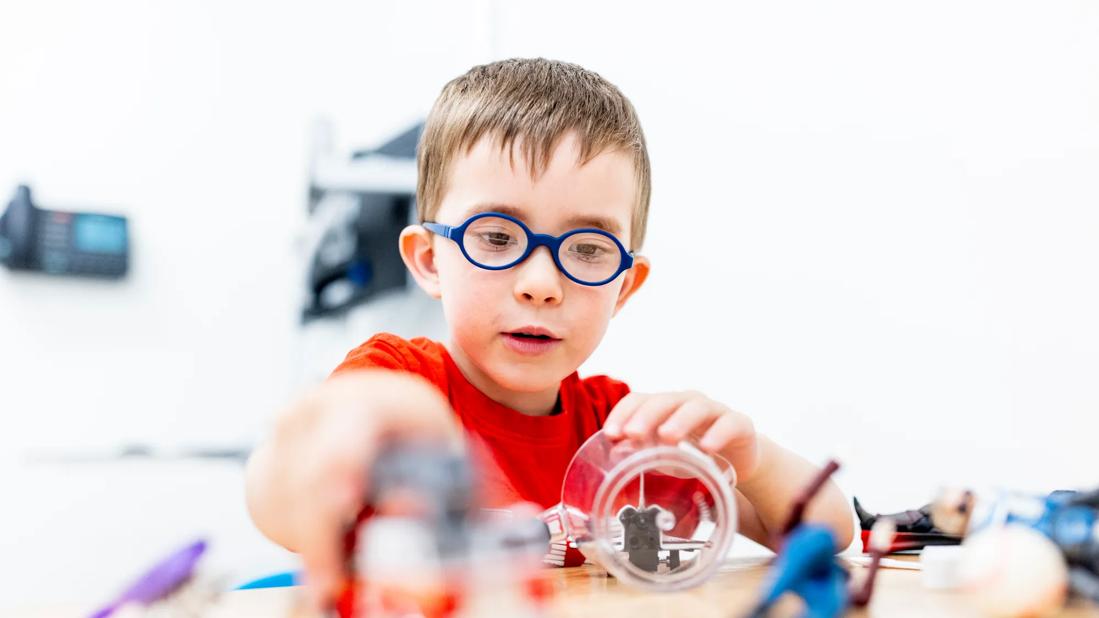
The U.S. Department of Defense has awarded a Cleveland Clinic Children’s researcher two, four-year grants to support innovative clinical trials for young children with autism spectrum disorder.
Advertisement
Cleveland Clinic is a non-profit academic medical center. Advertising on our site helps support our mission. We do not endorse non-Cleveland Clinic products or services. Policy
Cynthia Johnson, PhD, Director of Cleveland Clinic Children’s Center for Autism, is principal investigator of both studies.
The first study, a four-year, $1 million grant directed by Dr. Johnson, will evaluate the efficacy of two parent-focused programs – the Sleep Parent Training program (SPT) and the Parent Educational Program (PEP) – both delivered via the Cleveland Clinic Express Care Online app.
The Sleep Parent Training program is modeled after a behavior parent-training program developed by Johnson. Through this randomized trial, parents are provided practical tools and suggestions for improving the child’s bedtime routine, such as self-soothing techniques. The Parent Educational Program provides useful information about the child’s diagnosis and information about accessing services for the child.
The sleep study will involve 90 patients with autism spectrum disorder between the ages 2 and 7 who have a significant sleep disturbance.
“Both programs will be offered through the Cleveland Clinic Express Care telehealth platform over the span of five sessions, which allows us to reach more families and gives more scheduling flexibility,” Dr. Johnson says. “With this approach, we’ll be able to coach the parents at a time that is convenient for them, such as at dinnertime or right before the bedtime routine.”
This research will build upon a previous NIH-funded pilot study, led by Johnson at the University Of Pittsburgh School of Medicine, that observed favorable sleep outcomes with the behavior parent-training program.
Advertisement
In addition to the sleep study, the Department of Defense also has awarded Cleveland Clinic Children’s Center for Autism, and four collaborating institutions nationwide, a four-year, $7 million grant to study the comparative effectiveness of early intensive behavior intervention (EIBI) with less intensive, time-limited, applied behavior analysis (ABA) for young children affected by autism spectrum disorder. Key child and parent outcomes will be compared at three time points during the 24 weeks of intervention, at follow-up and at 5 years of age.
The data coordinating center for this study is the University Of Rochester School Of Medicine. Johnson and her team at Cleveland Clinic Children’s Center for Autism will collaborate with co-investigators at May Institute (Randolph, Mass.), Nationwide Children’s Hospital (Columbus, Ohio), and Vanderbilt University Medical Center (Nashville, Tenn.).
The study plans to recruit a total of 130 children, between the ages of 2 to 5, across the collaborative network, of which 33 will be enrolled at Cleveland Clinic Children’s Center for Autism.
Advertisement
Advertisement

Aim is for use with clinician oversight to make screening safer and more efficient

Rapid innovation is shaping the deep brain stimulation landscape

Study shows short-term behavioral training can yield objective and subjective gains

How we’re efficiently educating patients and care partners about treatment goals, logistics, risks and benefits

An expert’s take on evolving challenges, treatments and responsibilities through early adulthood

Comorbidities and medical complexity underlie far more deaths than SUDEP does

Novel Cleveland Clinic project is fueled by a $1 million NIH grant

Tool helps patients understand when to ask for help